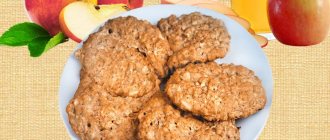Most mothers inevitably encounter various kinds of troubles with their infants, such as constipation in a newborn while breastfeeding. And this is absolutely normal - the baby is just adapting to the new environment. But nothing can scare a mother, armed with our articles. Today we will talk about how to treat constipation in an infant so that you are prepared for anything.
In the first months of a baby's life, anything can happen. Of course, there are mothers whose little one most often snores sweetly in his crib; he is not afraid of colic, crying and other delights of infant life. Do you think such children really exist?
According to statistics, intestinal problems bother at least 25% of infants in the first year of their life. If you are already an experienced mother, then you have probably already experienced colic, gas and constipation in your children. But novice mothers often get scared when they encounter baby constipation while breastfeeding, they don’t know what to do, and in a panic they take all available means to save their baby from the problem. Calm down, dear mothers! Treatment of constipation in an infant is characterized by very simple tactics: first we make sure that we are dealing with constipation, and then we apply acceptable measures.
How to determine constipation in a baby
After birth, at the initial stage, infants have poor bowel movements. At this age, you need to pay attention to the following factors:
- Number of bowel movements and consistency. Poor condition is accompanied by hard feces.
- Baby's behavior. If children spend most of their time in a horizontal position, they experience difficulty defecating. Constipation is confirmed if the child pushes several times a day to no avail, while the newborn’s tummy is hard.
- The baby's well-being. Within a month after giving birth, the mother should control her own diet. A lot depends on what she eats; these same substances pass to the baby through mother’s milk. If the stomach hurts for several days, and there is still no stool, parents need to consult a specialist. During the period of constipation, a process of rotting occurs in the child’s intestines, which poisons the still fragile body.
baby's stool frequency
The main symptoms of infection include:
- dry lips;
- during the week the temperature is 37 degrees;
- lack of appetite;
- drowsiness.
If the consistency of the stool is mushy, the baby grunts during bowel movements, but sleeps and eats normally, then a long absence of stool is the norm.
Natural Changes
Let's talk about the functioning of the digestive system of a child who is fed breast milk.
- In the first days of life, the newborn is offered colostrum as food. There is not much of it, which is why the baby empties 1 to 3 times a day. His stool is still called meconium, it is dark in color and thick, and there is no odor.
- Every day the baby adapts better and better, and the mother’s milk supply increases. Then the baby’s stool will also change: after eating breast milk, it is already more liquid, the color of mustard. A yellow-brown color with a greenish tint is also possible. The bowel movement smells like sour milk.
- In the first 2 months, when the baby is breastfed, it will be considered normal to empty the intestines after each meal or at least 2 times a day. But sometimes this mechanism will fail, and that's normal.
- Already at the age of 2 months, the number of bowel movements per day increases and occurs more than 4 times.
- A three-month-old baby may have green stools - this will most likely indicate teething or a cold.
- As we get older, stool frequency decreases again. When your baby is 6 months old, he will soil his diaper about 2 times a day. At this time, acquaintance with the first complementary foods usually begins, and then the stool undergoes changes, reacting to the new food. The bowel movements become darker and have a specific odor.
Possible causes of constipation
The development of the fetus in the womb depends entirely on the behavior of the pregnant woman. The lactation period is also important so as not to harm the baby. Why does constipation occur during breastfeeding? The main causes of constipation include:
- Improper maternal diet. For easy bowel movements, you need to eat foods rich in dietary fiber. What should a nursing mother know to protect her baby? You should not include proteins and foods with quickly broken down carbohydrates in the menu, as this will have a bad effect on the functioning of the child’s gastrointestinal tract. The diet of a nursing mother should include more vegetables, cereals and whole grain bread. It is also worth regularly eating foods with a laxative effect: prunes, kefir, beets.
- Intestinal dysfunction. It stops contracting properly due to spasms. This occurs during postpartum trauma or during a difficult pregnancy. Symptoms such as insomnia and increased excitability of the baby also appear. Parents should seek help from a neurologist.
- Anal sphincter spasm. Due to a mechanical obstruction, the process of defecation was difficult. The baby suffers from increased gas formation and colic. It is recommended that a nursing mother remove cabbage, grapes, beans and soda from her diet.
- Developmental anomalies from birth. This group includes: narrowing of the anus or megacolon.
- Lack of milk. When a baby does not have enough milk, the food is completely digested, and nothing remains in the intestines.
- Introduction of complementary foods. This is the most common reason. This is how the child reacts to the new product. To alleviate the condition, you need to eliminate the problematic food and add it to the menu later.
We recommend reading: Why does a baby spit up after breastfeeding?
DIY diet
Treating constipation while breastfeeding is much easier than you might imagine. The first and very important action is to adjust your diet. How can this help? Very simple! Since dietary fiber is the main stimulator of healthy intestinal function, adding healthy foods in combination with eliminating harmful ones works wonders.
A balanced diet is the key not only to the treatment of constipation, but also to healthy lactation, as well as the excellent well-being of mother and child. Not so little as to be neglected, right? The first thing you should start with in normalizing your diet is getting rid of excess foods:
- very fried and salty;
- carbonated drinks;
- legumes;
- exotic vegetables and fruits;
- hard cheeses;
- coffee and strong tea;
- rice and semolina;
- walnuts.
Instead of these products, we recommend including the following in your menu:
- dried fruits;
- kefir and low-fat cottage cheese;
- boiled beets and carrots, can be pureed;
- oatmeal, rolled oats and millet;
- herbal decoction of fennel;
- olive and linseed oil;
- pumpkin;
- apricot;
- plum and prunes.
Constipation will definitely not appreciate such a menu and will quickly leave you! But do not forget that the feeding regimen involves food restrictions. This means that, despite the enormous benefits, the above products should be consumed in limited quantities and only if the baby is not allergic to them.
What can be done
A baby develops constipation while breastfeeding - what to do? Every mother asks this question when she has a baby. If the pathology is not serious, then the mother can help herself if the baby has constipation. Most laxative medications are safe for children. You can eliminate constipation in a newborn using the following rules:
- It is necessary to include natural laxatives in the mother’s menu: prunes, dried apricots, beets.
- Infants are given lactulose-based syrups, similar in composition to medications (Bioflorax, Duphalac). For increased gas formation, medications like Espumisan or Plantex are suitable. The medicine Microlax is very effective.
a little humor
You can ease the passage of gas in your baby yourself; all you need to do is massage the tummy. The most effective exercises:
- The baby is laid on the back and light stroking is done in the umbilical area. You should move in a circle, clockwise.
- Place the baby on his back and press his legs to his stomach. Then one leg is straightened, the other is bent, then vice versa.
- Before the lactation process, the baby is placed on its stomach.
Parents should pay attention to their baby's digestion. If after 2 days the process of defecation does not occur, you should consult a doctor.
The pediatrician comes to the rescue
The first piece of advice on how to help an infant with constipation is to see a doctor. A visit to the doctor will be mandatory: only under his strict guidance will the cause of the unpleasant phenomenon be discovered and it will become clear how to rid the child of the problem. You can’t do an ultrasound and take a stool and blood test from your baby on your own, can you? And for a thorough and professional diagnosis you cannot do without these procedures. And only after identifying the causes, the doctor will tell you how to treat your baby.
Independent choice of drugs and folk remedies can lead to unpleasant consequences: there may be a risk of allergies, rectal injuries, dysbacteriosis and other disorders.
We want to tell you about the most common methods of treating constipation in newborns during breastfeeding and older children.
Drug treatment of constipation
After consulting a doctor, constipation in an infant (medication treatment is allowed only after a visit to a specialist) can be treated at home with the help of medications.
We recommend reading: Baby refuses breast milk
First, you need to let your baby drink a lot of water and massage his tummy. If the stool does not return to normal after such manipulations, then you can begin drug therapy. This treatment is based on:
- using suppositories for constipation (Glycerin). The required dose is prescribed by the doctor!
- installing a gas outlet pipe. A tube is inserted into the child, irritating the intestinal lining, causing defecation;
- taking lactulose. The dosage is selected based on the age and weight of the child;
- performing an enema. This method is used as a last resort.
Under no circumstances should a piece of soap be inserted into a child's anus. This can “burn” the baby’s rectum, which will only make the situation worse.
Without liquid you can't go anywhere
No matter how many measures you take against an uninvited problem, they will be ineffective without a sufficient drinking regime.
Start with the right morning: as soon as you wake up, drink one glass of clean water, always on an empty stomach. This simple manipulation will allow you to stimulate your intestines to work productively.
Then, throughout the day, do not forget about the healing power of water for digestion. You will quickly forget about constipation while breastfeeding if you drink a minimum of 2 liters of water per day. This norm is calculated not only in water, but also in other drinks, as well as in food. But still, 1 liter should be equivalent to clean water.
Folk remedies
Only in extreme cases can you use folk remedies for constipation, since not all herbal decoctions can be given to infants. You can prepare the following drink: pour a glass of boiling water over fennel seeds and leave for 30 minutes. A mother should monitor not only her health and nutrition, but also her baby. If you have intestinal problems, you can give your child dill water or fennel infusion.
If the baby is six months old, you can prepare prune decoction. Prunes (1 piece) are soaked in water for 10 minutes. Then cut it into small pieces. Place the crushed dried fruit in a glass and fill it with new boiled water, boil and strain. Then the prepared drink is diluted with water at a ratio of 1:1. The prepared decoction is given a teaspoon three times a day before lactation.
Ode to Physical Activity
This is another elementary, but very effective measure against an unpleasant illness. Of course, strenuous exercise and breastfeeding are in no way compatible, but there is a healthy and beneficial compromise.
Walking and gentle exercise will not only benefit the mother in general, but will also act as a treatment for constipation. We also recommend sitting less: this makes the problem worse.
Spend 5-10 minutes daily on therapeutic exercises: even this time will be enough to get rid of constipation.
Prevention
To prevent constipation during breastfeeding, it is necessary to eliminate provoking factors. Preventive measures include:
- Baby food. It is forbidden to overfeed a baby or, conversely, give him little milk. To ensure that the baby gets the right amount of food, they came up with weighing before and after feeding.
- It is necessary to give the child water in between feedings.
- You should pay attention to the activity of the baby. It should often be placed on the stomach, massaged, and worn in an upright position.
- A nursing mother's menu should include foods that are rich in fiber and have a laxative effect.
We recommend reading: Stool in a breastfed baby: how many times should there be, pathologies
Before starting treatment, you need to find out whether constipation is a problem for your baby or whether infrequent bowel movements are normal. If the lack of stool causes discomfort to the little one, then it is worth eliminating the causes of the development of the disease and trying to stimulate peristalsis with folk remedies.
Symptoms
When a child is cheerful, eats and plays well, and gains weight normally, there is, of course, no reason to worry. What then are the symptoms of constipation in a breastfed baby? How to determine that there is a problem?
- The baby loses his appetite
- His face turns red and his legs are tucked up to his stomach.
- Poor weight gain
- The child strains strongly when trying to have a bowel movement
- Gases are either absent completely or have a putrid odor
- Feces have a thick consistency and also have an unpleasant odor.
- Against the background of prolonged absence of stool, vomiting or excessive regurgitation is possible
Let's look in the first aid kit
The appearance of constipation during lactation significantly limits the list of approved drugs for its treatment. The main criterion for the medicine is that it does not pass into breast milk and is not absorbed into the intestines. There are not many such means, but still, fortunately for mothers, they exist. Only a doctor can prescribe the most suitable drug with an acceptable dosage; we just want to provide a list of the most popular drugs prescribed for hepatitis B:
- Lactulose;
- Forlax;
- Duphalac;
- Phytomucil;
- Fortrans;
- Microlax suppositories;
- sea buckthorn or glycerin suppositories.
There are drugs that have long proven themselves to be effective helpers against constipation. But even taking into account their strong effect, they are prohibited for a nursing mother. These include Guttalax, Regulax, Sennalax and Swedish bitters.









